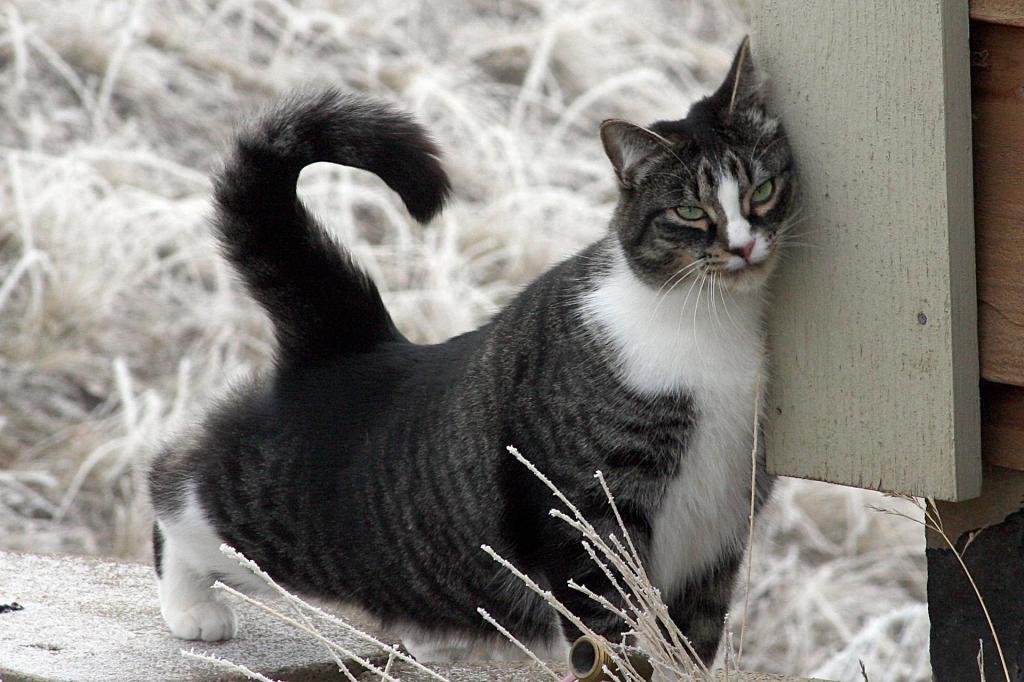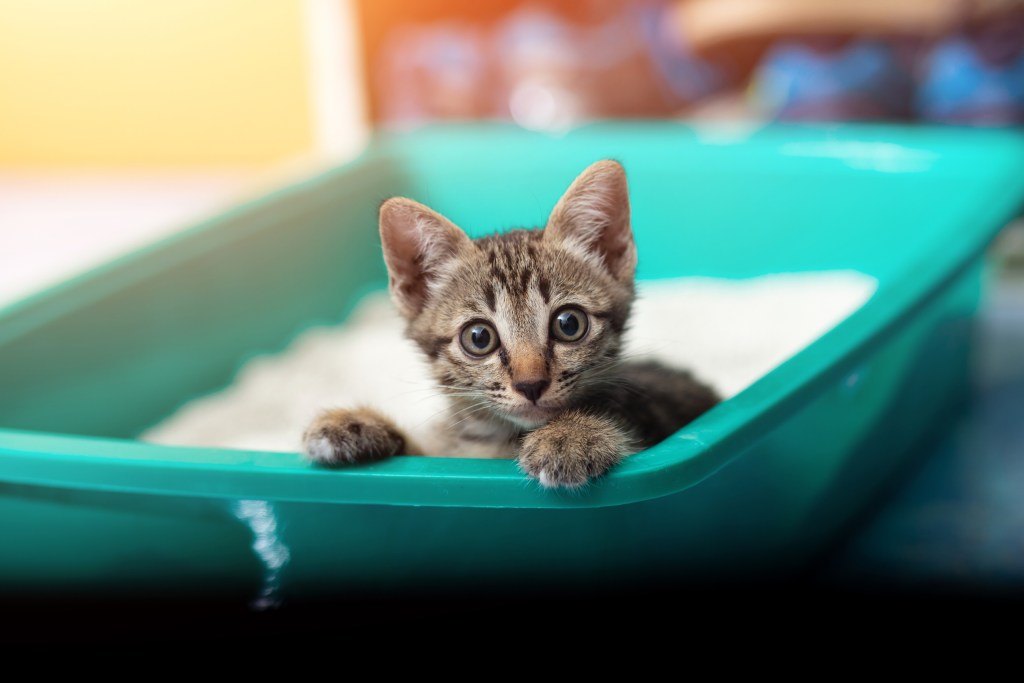You’ve probably worked hard to help your cats establish good litter box habits, so what do you do if your cat suddenly starts peeing on your items, like clothing, beds, or even the carpet? This behavior, called marking, can be incredibly frustrating, especially since it’s super difficult to get cat pee out of certain surfaces, and you might end up throwing items away. If you suspect your cat is marking items in your home, there are multiple steps that you can take to help prevent the behavior and better understand why it’s occurring. It can take some work, but you may be able to save your stuff in the process and help your cat to feel better and more comfortable in your home.

Why does my cat pee on my stuff?
According to the ASPCA, if your cat pees on your items, he is using his urine to mark the items. Cat marking is a behavior that originates with groups of cats trying to understand whose territory is whose. If cats leave the group, they claim their own territory. And to mark that territory, cats pee.
Cat pee indicates that a cat was present and conveys information to other cats, including how long ago the cat was present in the space. Urine can even communicate when a cat is looking for a mate. Think of peeing as being a cat’s way of leaving behind a message when he’s not around.
If your cat starts to pee on your stuff, he’s probably doing so to mark his territory. According to VCA Hospitals, if your cat marks your things, even if you clean up the odor, he may return to mark them again. You may have better luck changing the way that the area is used. For example, cats are unlikely to mark the areas they use to eat or sleep. If your cat is marking a rug, you might try removing the rug and placing your cat’s food dishes in the area, instead.
What does cat marking mean?
The ASPCA explains that cat marking is your cat’s way of leaving a message to tell other cats that he lives in that area. Cats often mark vertical surfaces by spraying, and that urine contains extra chemicals, so it’s extra smelly.
Cats may mark for many reasons. It’s common for unneutered males to mark spaces to advertise the fact that they’re available to reproduce. If you have lots of cats in the home, it’s likely that they will mark spaces to establish their territory.
Changing the household can also lead to stress in your cats, which can prompt marking. You might remodel the house, bring home a new baby, introduce a new pet, or make some other change that leaves your cats feeling uncertain. Your cats might start marking their territory as a result.
If cats in your home aren’t getting along, they may also start to mark areas. Cats who don’t have the social skills to sort out their own disagreements or who are forced into areas with other cats they don’t get along with may start marking items in your home.

How to discourage cats from marking
It’s tough to get cat pee out of items, especially carpets, so it’s best to find ways to discourage your cats from wanting to mark surfaces. The ASPCA recommends that, if you have multiple cats, it’s important to determine which one is doing the marking. You might need to temporarily separate or confine your cats so you can tell which one is expressing this behavior.
Next, you’ll want to look to your litter boxes. Too few boxes could result in conflicts between the cats and lead to marking. You should have one more litter box than you have cats, and the boxes need to be in different locations and levels of your home. Be sure to make sure that the cats have easy access to each box, so one cat can’t trap another cat in the box or prevent them from getting to the box.
Just like you make sure that your cats all have access to the litter boxes, it’s important to distribute other essentials, like food dishes and cat beds, throughout the home. The goal is to avoid a situation where one of your cats is preventing the others from getting to the spaces and equipment they want to be able to access.
You might try using synthetic pheromones in the rooms where your cat is marking. These pheromones’ can help to relieve stress and reassure your cats. They’re available in handy spray bottles, as well as in automatic dispensers.
While marking is often a behavioral issue, it can be caused by medical issues, too. If you’ve tried these steps but haven’t been able to prevent marking, or if you’re noticing other issues like increased thirst or difficulty using the litter box, schedule an appointment with your vet right away. Your vet can give your cat a thorough examination and can help to identify any health issues that might be causing your cat to pee outside of the litter box. Many of these conditions are treatable, and once the health issue is resolved or improved, your cat’s litter box habits should improve, too.


